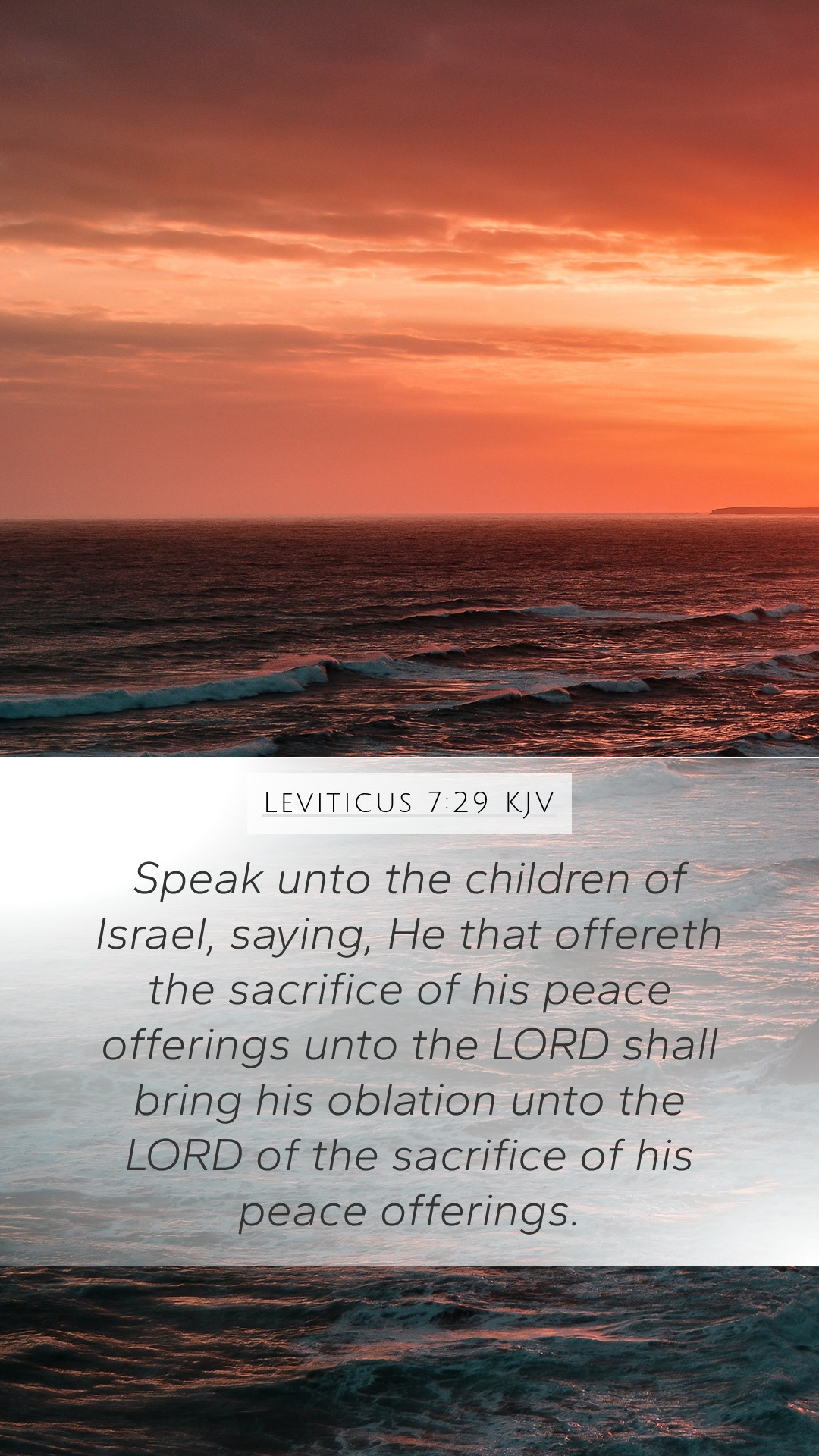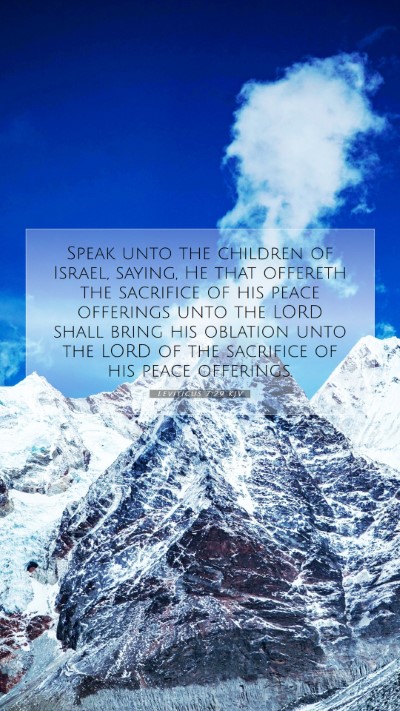Understanding Leviticus 7:29
Leviticus 7:29 states:
"Speak unto the children of Israel, saying, He that offereth the sacrifice of his peace offerings unto the LORD shall bring his oblation unto the LORD of the sacrifice of his peace offerings." (KJV)
This verse provides significant insights into the sacrificial system prescribed in the Old Testament. Below, we will explore a comprehensive understanding of its meaning, commentary, and significance in the context of biblical teachings, which is essential for anyone involved in Bible study or seeking Bible verse meanings.
Contextual Background
The Book of Leviticus, written during the Israelites' wilderness period, contains laws and regulations that God gave to Moses. The chapter outlines various offerings, focusing here on the peace offerings, which symbolized fellowship between the worshiper and God.
Key Elements of Leviticus 7:29
- Peace Offerings: The peace offerings were intended to express gratitude and fellowship with God, differentiating them from sin offerings which dealt explicitly with atonement.
- Oblation to the Lord: An essential duty is highlighted, that the worshiper must bring an offering “unto the LORD,” signifying submission and acknowledgment of God’s sovereignty.
- Relation to the Community: Peace offerings often involved communal sharing, reinforcing community ties and relations among the people of Israel.
Biblical Commentary
Matthew Henry notes that the peace offerings are an expression of thanks and delight in God’s presence. They reflect the joy of reconciliation with God, highlighting the importance of fellowship with the Almighty.
Albert Barnes comments on the ritualistic nature of offerings, emphasizing that true worship involves bringing our best to God. This implies that every offering presented should be done wholeheartedly, signifying respect and honor towards God.
Adam Clarke emphasizes the ritual's significance in Israel’s worship life, indicating that peace offerings cultivated a deeper relationship with God and the community. He also suggests that these offerings anticipate the ultimate peace brought by Christ.
Interpretations and Applications
Leviticus 7:29 serves not only as a directive within the mosaic law but provides profound implications for modern believers:
- Value of Fellowship: Just as the Israelites were called to bring their offerings to God, Christians are invited to maintain a relationship with God through prayer, worship, and gratitude.
- Understanding Sacrifice: Recognizing that sacrifices symbolize our devotion to God, this verse invites believers to introspect on what they bring to their own spiritual lives.
- Community Significance: The peace offering emphasized unity. In today’s context, it calls for Christians to promote peace and unity within their communities as an extension of their relationship with God.
Cross References
This verse can be connected with several other biblical passages that enhance its understanding and significance:
- Exodus 24:5 - Instructions regarding peace offerings.
- Leviticus 3:1-5 - Details concerning the peace offering.
- Romans 5:1 - Peace with God through Jesus Christ.
- 1 Corinthians 10:21 - Discussion on offerings to God.
- Hebrews 13:15 - The sacrifice of praise.
Conclusion
Leviticus 7:29 encapsulates significant principles regarding worship, community, and sacrifice in biblical context. The insights from historic commentaries allow for a broader Bible verse commentary which promotes deeper biblical exegesis and understanding of Scripture. As we reflect on such verses, it becomes clear how they apply to both our relationship with God and our interactions within the church and wider community.
For individuals engaging in online Bible study or seeking Bible study guides, this verse provides a profound basis for exploring themes of sacrifice and fellowship in both testaments. It engages believers with ongoing Bible study insights and illustrates how understanding Scripture can profoundly influence daily life and fostering community ties.


